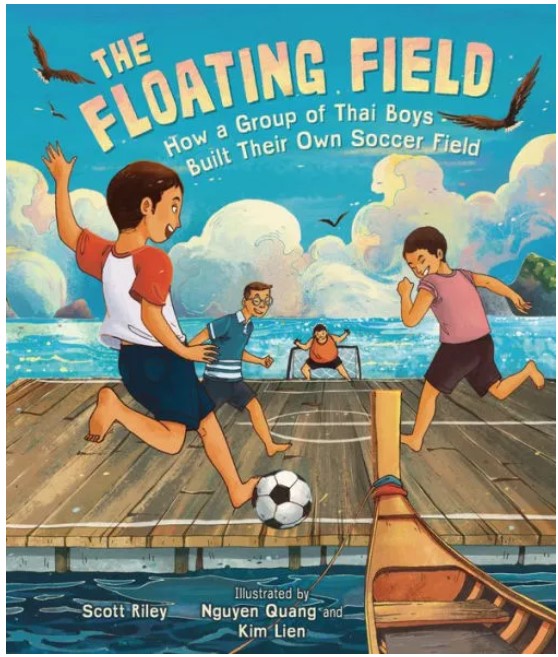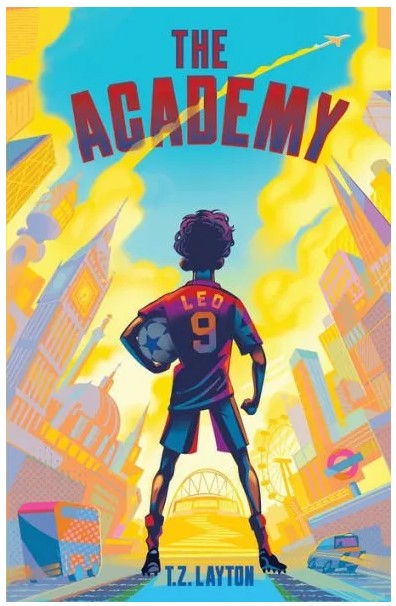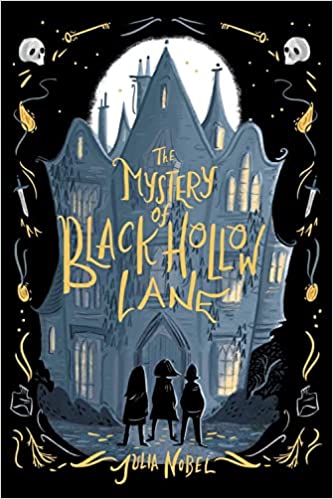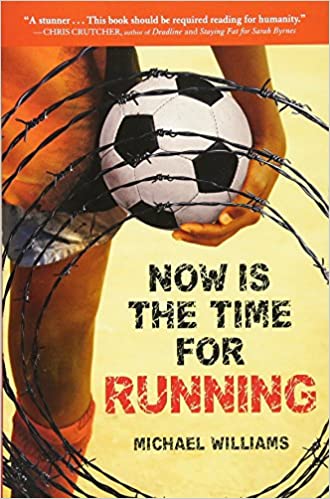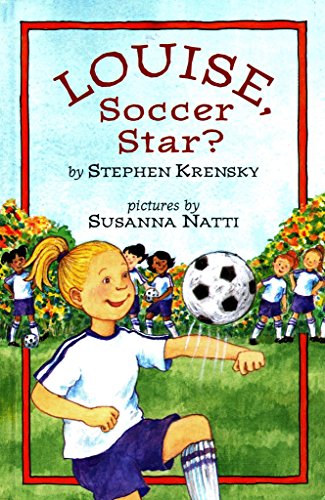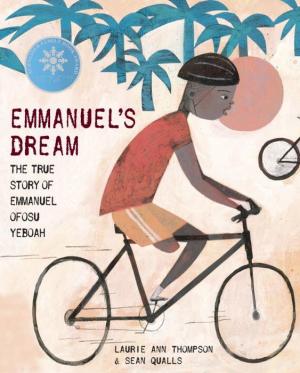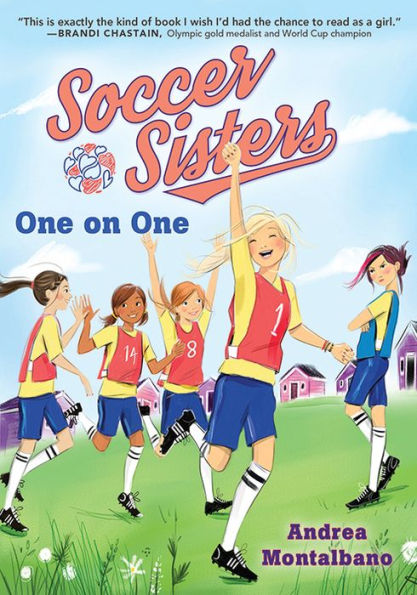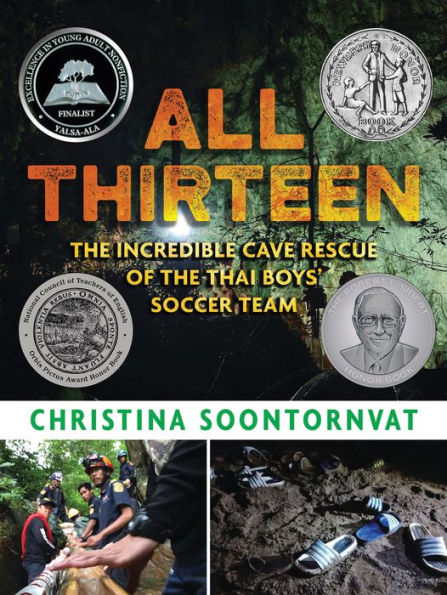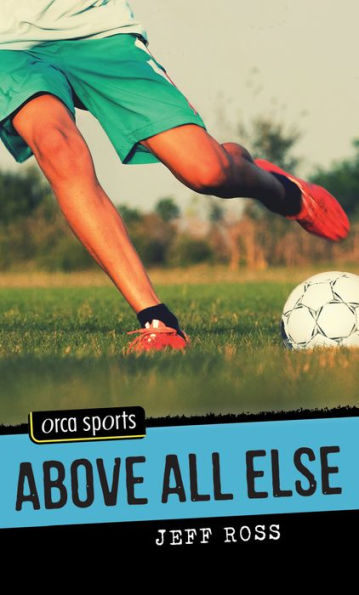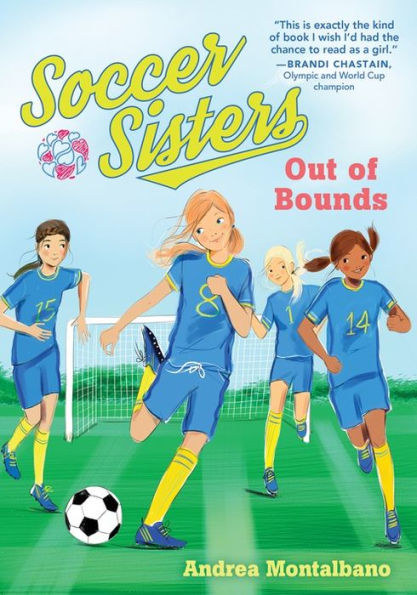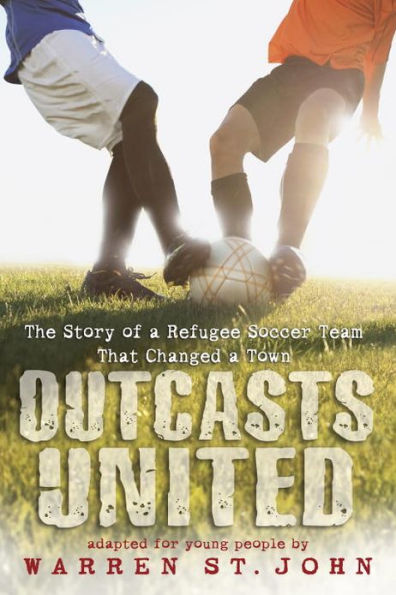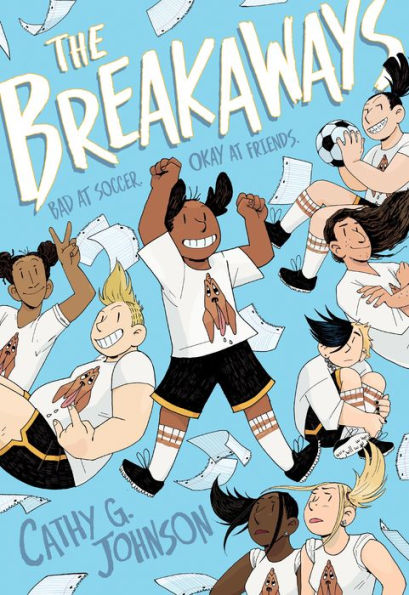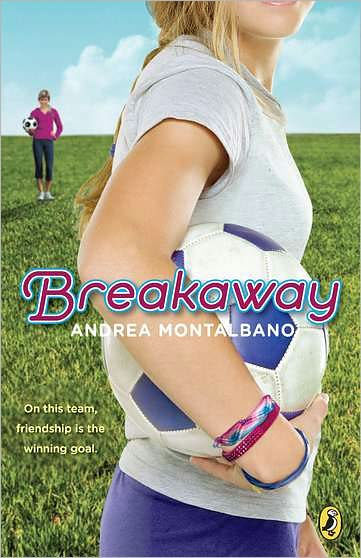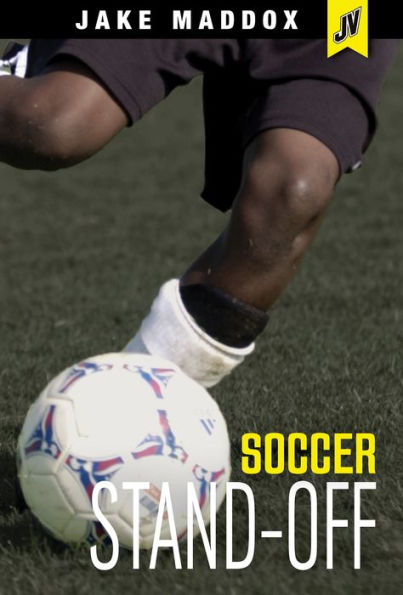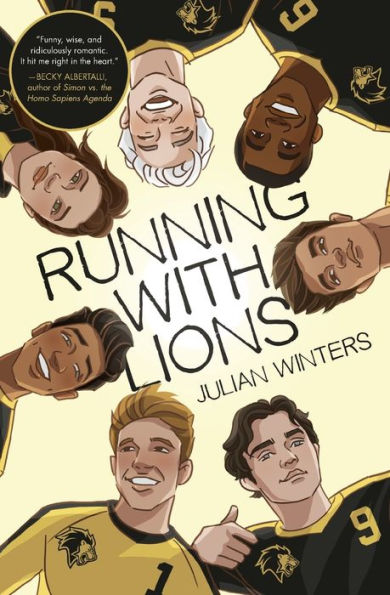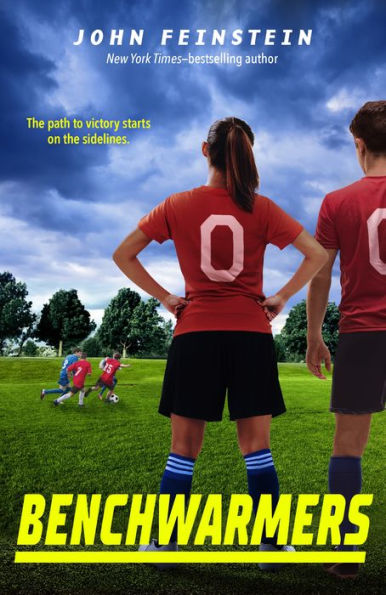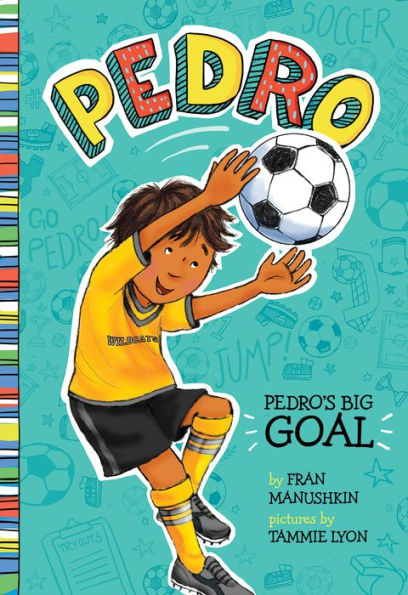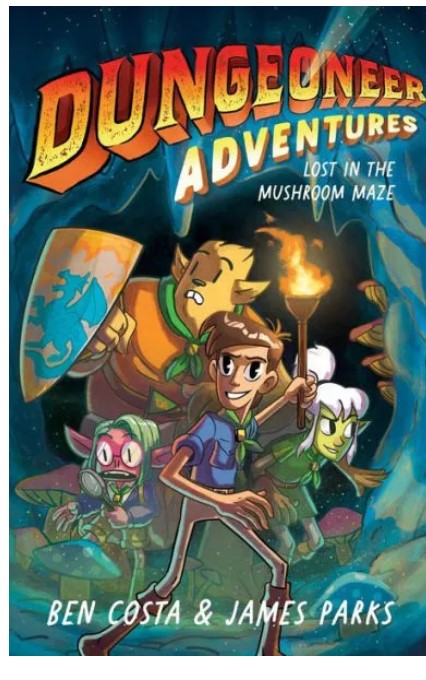In the poor village of Gutu in Zimbabwe, Deo and his family live in one room. The people of his village are starving and struggling. Deo doesn’t even have a proper soccer ball to play with – just a bag of leather and twine – but this village is the only place he’s called home. When government soldiers destroy Gutu for housing “dissidents” suddenly Deo has lost his family, his home, and his happiness all at once. Deo’s mentally disabled older brother, Innocent, is his only remaining relative. Deo must get Innocent to safety in South Africa, but the journey to a better life is harder than he could ever imagine.
First, Deo and Innocent leave Zimbabwe. As they travel, they see a country torn apart by the government’s purge of dissenters. They narrowly escape run-ins with soldiers and travel through dangerous wilderness to cross the border. They spend some time at a farm, but danger arises when the local workers don’t like that refugees have stolen their jobs. The promise of a better, safer life lies in the city of Johannesburg. Once again, Deo and Innocent uproot themselves and travel to the city.
However, Johannesburg doesn’t turn out to be the haven they heard about. Instead of fighting against the government, the people in South Africa are fighting each other. Groups of radicals are calling for “foreigners” – the refugees from other African nations – to go home or be eradicated. They destroy refugee-owned shops and ruin their homes. During one of these raids, Innocent is killed.
Without his brother, Deo doesn’t know what to feel. In fact, he wants to feel nothing at all. The book resumes almost two years later with Deo addicted to drugs and living on the streets. His life changes by chance when a soccer coach sees Deo’s skill with the ball, and suddenly Deo is given a place to sleep, warm food to eat, and a reason to live: playing soccer.
At first, his team is a far cry from a family. Deo thinks they come from too many different places to understand each other. However, Deo’s coach convinces them that their strength lies their differences. They play successfully at the Street Soccer World Cup, also known as the Homeless World Cup – a competition that brings refugees and street kids together for the chance to change their lives. The story doesn’t reveal how the final match ends, but for Deo, his new life is just beginning.
Inspired by true events, Now is the Time for Running is a journey of displacement through the eyes of a young man. Deo tells it like it is – he doesn’t shy away from the situation in Zimbabwe despite how much pain it causes him. It’s necessary to note that this book does not shy away from the horrors of civil war, poverty, and intolerance. While this book is not for the faint of heart, the lessons and truths it brings to light are meaningful and powerful. As a narrator, Deo goes through more in a few years than many people suffer through in their whole lives, but this doesn’t make him less relatable. Deo wants to protect the people he loves and to be happy – goals that anyone can relate to.
The first lesson of this book is clear: Deo never gives up. His unrelenting goal to protect his brother and escape the disastrous situation in Zimbabwe shows that he is continuously determined to have a better life. Even after Innocent dies and Deo struggles with addiction, he gets back on his feet through the soccer program. Despite great odds, Deo shows that people can always make the choice to persevere towards their goals.
The other main theme of the story is not as apparent, but it’s one of the reasons readers see repeated instances of violence as Deo searches for a new place to call home: The “us vs. them” mentality. While present throughout the whole book, such as when the soldiers massacre the people of Gutu or when Innocent is killed in the anti-refugee riots, this issue comes to a head in Deo’s soccer team. After fighting breaks out amongst the teams, Deo’s coach teaches them that the true strength lies in their differences. The coach says, “Each of you brings something special to this team. Zimbabwe has brought me guts and determination; from Kenya, I get lightness and speed; from Mozambique, superb ball control and agility. . . It is because we are not the same that we are stronger than any other team in this competition! All of you have learned to play soccer in different parts of Africa. Our combined playing style is like no other in the world.” Once the team listens to the stories of their fellow teammates, they understand that they all have suffered, but they can all move forward together.
Now is the Time for Running is a powerful book that teaches that strength does not lie in forcing everyone to be the same; it comes from accepting that everyone’s differences bring something new and unique to the table. Readers who want to learn about history through the eyes of an athlete should also read The Berlin Boxing Club by Robert Sharenow.
Sexual Content
- The guards punish Innocent by taking his clothes away. When Deo rescues him, Innocent throws a fit about being naked, but Deo convinces Innocent to come with him by saying that the soldiers might take both their clothes. “We don’t want the soldiers to come back and take my clothes too. Then we’ll both be naked. . . Can you imagine everyone laughing at our butts and our balls bouncing around?”
- One of the women that Deo and Innocent stay with is a sex worker.
- Two of the soccer players, T-Jay and Keelan, have a short exchange. When T-Jay says Keelan has a “cute butt,” Keelan gives him the middle finger.
- Innocent always carried a condom. Keelan says, “Perhaps your brother knew more about sex than you think.” Deo replies, “Innocent didn’t like girls much. He saw safe-sex ads everywhere, and he thought that condoms would keep him safe from girls.”
- During a game, Deo describes, “Keelan. . . scored her third goal and headed straight to me. I was sitting on the bench when she threw her arms around me and kissed me on the cheek.”
Violence
- Deo punches a kid named Pelo who calls him crazy on the soccer field. “Pelo does not have the chance to finish what he’s saying because he has to deal with my fist in his mouth. . . ” Another kid pulls Deo away before the fight continues.
- When Deo sees soldiers carrying guns, he thinks about the damage guns can cause. “I have seen a cow cut in half from a burst from one of those guns.”
- Deo knows stories about the violence brought by the soldiers. The soldiers “went to Chipinge when the people were angry from hunger, so angry that some of them were killed. Auntie Aurelia told us that her niece was one of those who were hungry. She did not say how she bled to death.”
- Commander Jesus comes to Deo’s village, Gutu, to kill dissenters of the government. Commander Jesus says, “In the back of my jeep there is a drum filled with blood. The blood came from people who voted wrongly. My life is to drink human blood. My supply is running low. I have come here to kill dissidents. . . You are going to eat eggs, after eggs hens, after hens goats, after goats cattle. . . . Then you are going to eat your children. After that you shall eat your wives. Then the men will remain, and because dissidents have guns, they will kill the men and only dissidents will remain. That’s how we will find who they are, and then we will kill them.”
- The soldiers and Commander Jesus hurt Grandpa Longdrop. Deo witnesses “an awful crunch and [I] see Grandpa Longdrop collapse in front of me. His eyes look dazed. He tries to get up, and I try to reach him to tell him to stay down, but then Commander Jesus kicks him. He crumples.”
- Deo’s mentally disabled brother, Innocent, comes to defend Grandpa Longdrop. “Innocent runs screaming toward Commander Jesus with a stick raised high above his head. He cracks it down on Commander Jesus’s outstretched hands.” The soldiers attack Innocent. “The soldiers beat Innocent with their rifle butts. What is worse than the sound of wood against the bones of your brother?. . . Innocent does not cry. He lies like a baby, curled up, his hands and arms covering his head. . . Innocent is pulled to his knees. His face is crooked, his eyes black balls. Blood trickles from his broken nose.” Innocent later recovers from these injuries.
- Commander Jesus has the soldiers beat all the residents of Gutu. “The soldiers beat us as we lie on the ground. . . Useless hands against hard sticks. Elbows cracked. Heads smacked. Screams. Flashes of wood. Soldiers grunting. And pain. Lots of it.”
- After the beating, Deo assesses the townspeople’s injuries. “Grandpa Longdrop lies on the ground, his head in my [mother’s] lap. Sometimes he groans, and sometimes he is so quiet that I am afraid that he will never wake up. . . The backs of my legs hurt where the soldiers’ sticks fell, but this is nothing to what others have suffered. One of Lola’s brothers has a broken arm. Bhuku’s [mother] has a split in her head that bleeds and bleeds. Shadrack’s little sister could be dead.”
- The soldiers pull a truck driver out of his car and kick him before letting him run away.
- The soldiers take Innocent as punishment for hitting Commander Jesus. Deo finds him later. “A naked body is lying in the middle of the [cattle pen]. The man’s wrists are tied to pegs in the ground. His ankles are tied to the end of a log that stretches his legs wide apart. There is a sack over his head. . . I notice ants crawling all over his body. . . There is dried blood at the side of his mouth, his nose is broken, and his eyes are all puffy.” Innocent says the soldiers also peed on him.
- The soldiers end up killing everyone in Deo’s village. “Gunshots rat-a-tat-tat across the valley. . .I crawl forward into the noise of people dying. The soldiers are shooting. People are running away. Some are falling. Now the soldiers hold their guns as if they mean business. Their guns bark, come alive in their hands, their bullets rip into the earth, the walls, trees, pots, chairs, and flesh. I watch. I am too afraid to turn away. People scream; their cries are cut in half by bullets.”
- Deo finds his mother (or “Amai”) and Grandpa Longdrop among the dead villagers. “Amai is lying face down. Her arms are thrown out in front of her as if she is trying to grab something out of her reach. Her back is covered with a damp patch of blood. . . I find Grandpa Longdrop. He stares up at the sky. His mouth is open. He does not look like Grandpa Longdrop anymore. I find Shadrack. Dead. There is Lola. Blood where her face should be. Her brothers are lying not far away.”
- During a soccer game, Deo gets angry and kicks a boy named Aziz. “I charge [Aziz] from behind and deliberately kick his ankles. He falls, and the players on his team shout at me.. . . Aziz gets up, inspects his knee. It’s bloody.”
- When crossing the border, two of the men in the group climb an electric fence and are electrocuted. “The two men run ahead, faster than us. They are the first to reach the fence. They start climbing. . . The wire fizzes, crackles, and the men shriek and fall to the ground as the electricity burns them.” The men are dazed but recover.
- An anti-refugee gang pulls a shopkeeper named Ahmed from his store and beats him. “Hands grab Ahmed and pull him onto the street. He screams as many sticks fall on him. . . Ahmed’s white robes turn red with blood.” It’s unknown whether he lives or dies.
- Deo finds Angel, a sex worker, beaten up by one of her clients. “Angel is covered with blood, beaten. She lies on her bed, curled up in a ball. Her face is swollen. . .” Angel explains that her clients “were tired of paying a kwerekwere [a foreigner]. They wanted it for free.”
- Deo finds Innocent’s dead body on the ground during an anti-immigrant raid. “I see the shape of a human head, lying on its side. The shape of an arm and a hand. . . I reach the body of my brother, facedown on the ground, covered with rubble.”
- A refugee named Muhammad commits suicide by jumping into the ocean. “Muhammad had had enough of what he called a life without hope and without country. . . so he chose to run to the blue horizon. [The police] sent out a boat to fetch [Muhammad], but they never found him.”
- While playing soccer, T-Jay and Deo get in a fight. “T-Jay lashed out at me with his elbow. The blow caught me squarely between the eyes, and for a moment I thought I was going to fall down. But instead of taking me down, it was like a switch that flicked on inside me. My fist found its way up T-Jay’s nose and my knee said hello to his balls. . . he got in quite a few good punches before my nose started bleeding. I stopped kicking T-Jay only when I heard [the] whistle bursting my eardrum.”
- Keelan explains how she ended up in South Africa. Soldiers came to her town to punish the people who had voted wrongly. Her father, the community leader, was killed. Keelan says, “they had chopped off his arms with a machete.”
- T-Jay shares his story too. His father lost his foot when he stood on a landmine. T-Jay’s father “couldn’t work anymore, so he stayed at home. He beat the crap out of me until the social services took him away.”
Drugs and Alcohol
- Captain Washington, a family friend of Deo, drinks after he learns Deo’s mother is dead. Captain Washington “brings back a bottle of booze. He pours himself a drink and swallows it quickly…At least when he drinks, he is no longer crying.”
- After his brother dies, Deo gets addicted to sniffing glue, a common addiction for street kids in South Africa. Deo says, “the glue makes everything weightless.” He also calls it the “magic tube.” Deo talks about getting high off glue and the withdrawal symptoms, which include vomiting and muscle aches.
- Deo notices that some of the other kids on his South African soccer team are also “glue-tube heads.”
- T-Jay’s father was an alcoholic.
- T-Jay says it’s too late for him to go back to school because he got into drugs.
Language
- The story contains some profanity. Shit is used a few times; damn is used three times.
- Deo says fear smells worse than “dog crap.”
- A rude man calls Mai Maria, a woman who helps Deo and Innocent cross the border, a “filthy Rasta woman.”
- Angel calls someone a “bitch.”
- The slur kwerekwere is used occasionally. It is a derogatory term for foreigners or outsiders. It is used by gangs of people who want to expel the refugees from their country.
- The guy who sells Deo glue says, “get your ass down here.”
Supernatural
- There is a rumor that Mai Maria is a witch who eats children.
Spiritual Content
- The Methodist Church is mentioned throughout the story because they sometimes provide food and shelter for refugees or struggling communities. Once, Deo stays in a shelter set up by the Methodist Church.
- Deo talks about Spirits. “Grandpa Longdrop says that there are two kinds of people, those who believe in the Spirits and those who don’t. . . I understand the Spirits of the Wind, the Spirits of the Rocks, and the Spirits of the Trees are all those who have died and live on in other ways. I understand that they watch over us, that they can sometimes be angry because we forget them. And it is said that when they are angry, they can sometimes punish us. But this thing of the beating [by the soldiers] is too big to blame on the Spirits. They would not allow such a painful thing to happen. If I believe in Spirits, why would I believe in something that causes such pain? Surely the Spirits had nothing to do with what has happened in our village.”
- Deo sings an ancient Spirit song passed down by his family to prompt Innocent into a fit so they can distract a group of soldiers. “It is always terrible to see Innocent when he has one of his fits. . . People are afraid of Innocent when he becomes like this. They think he is possessed. They think that the Spirits have taken over his body.” The lyrics of the song are not included in the story.
- One of the items that Innocent carried with him was a pocket Bible with a note inside from their father. The note reads: “To Innocent and Deo, This is not a book of laws but a book of love. It will always be your salvation.”
- The soccer team from the Philippines at the Homeless World Cup chants, “For God and for country!”
- Bishop Desmond Tutu, who has come to oversee the Homeless World Cup, thanks God and says to the players, “God bless you all!”
